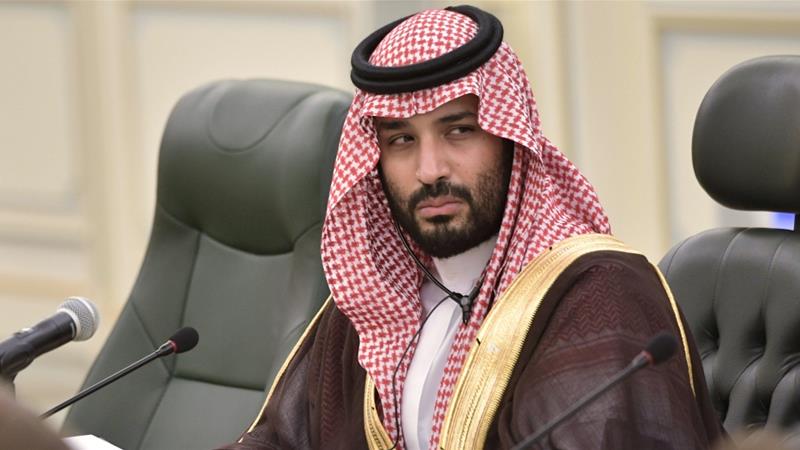Two new movies at Sundance, The Dissident and Saudi Runaway, show tech‘s role in the liberation of one person and the assassination of another.
The experiences of watching The Dissident and Saudi Runaway, two new movies at the Sundance Film Festival, are dramatically different. The first film is elaborate, sophisticated and gut-wrenching, a documentary about the assassination of Saudi journalist Jamal Khashoggi. The second film is quiet, raw and suspenseful, a doc shot covertly on smartphones by a woman named Muna in the weeks leading up to her escape from Saudi Arabia.
The first brings tears to your eyes; the second makes your muscles clench. But the two films, which have been screening during Sundance’s 10-day run that ends Sunday, underscore how technology contributes to both righteous endeavors and evil ones. As depicted in these films, tech gave the wider world an intimate glimpse of one Saudi citizen’s salvation, but it hastened tragic injustice against another.
Before it even premiered last week, The Dissident was already spurring headlines. The movie includes details about the alleged hacking of Amazon CEO Jeff Bezos’ phone with malware delivered by a WhatsApp message from Saudi Crown Prince Mohammed bin Salman. The United Nations released its findings about the crown prince’s alleged ties to the hack just days before The Dissident premiered at Sundance.
But the same malware that allegedly turned Bezos’ phone into a Saudi surveillance device also infected the phone of Omar Abdulaziz. A Saudi activist living in Canada, Abdulaziz was hacked a month after Bezos and three months before Saudi government officials killed Khashoggi in Saudia Arabia’s embassy in Istanbul in October 2018, according to the UN.
The Dissident reveals just how significant that hack may have been to Khashoggi’s fate.
“Here was Omar, this young dissident, who was now working with Jamal, the elder statesman, and these two were trying to fight for freedom of speech in journalism in their country,” Bryan Fogel, the film’s director, said at the film’s premiere.
For a long time, Khashoggi defied being characterized as a dissident or expatriate. In the film, Abdulaziz explains that by hacking his phone, Saudi officials would have realized the extent of Khashoggi’s activity with dissidents. It would have unlocked a group chat of Saudi dissidents that Abdulaziz invited Khashoggi to join. It would have uncovered how Khashoggi helped finance an underground social-media initiative, known as the bees, that Abdulaziz and others created to take on a Saudi pro-government troll army. And all of that was exposed by the same hack that preyed on a billionaire tech CEO.
Tech plays a very different role in Saudi Runaway. Muna, the protagonist, shot the film almost entirely herself on smartphones. Collaborating with director Susanne Regina Meures via encrypted messages, Muna chronicles her preparations and escape from Saudi Arabia by fleeing alone to Germany during her honeymoon just days after her arranged marriage.
Some of Muna’s footage is out in the open, which she passes off as mundane recordings by a phone-engrossed millennial or as imagery she needs for her wedding video. But most of the footage is covert, with Muna whispering to the camera from a closet, in a bathroom or under her blanket in bed, or with Muna shooting surreptitiously from her lap or by propping up her phone on a table. Sometimes she shoots undercover, literally: Out in public, Muna would often record through the black cloth of her religious body coverings.
In its own quiet tone, Saudi Runaway builds the kind of suspense that any thriller would relish. Muna cannot renew her passport without the permission of her abusive father, until she marries the husband who then assumes that control. Hiding in a windowless room in her wedding dress, she desperately pleads with her internet connection to upload footage faster before her excited bridal party can break in to deliver her to the picture-perfect wedding. With her passport’s expiration creeping closer, she must make her escape within the first few nights of her honeymoon, or her window of opportunity closes. And as soon as she uses that passport to travel without her new husband, the Saudi government will alert him and start the process of trying to stop her or claw her back.
But the most agonizing moments of the film are when Muna, as powerless as she feels, must grapple with abandoning the people she tries to protect in her domestic life in Jeddah. Her little brother, no older than 6 or 7, is frequently beaten by their father for disobedience. Her mother, who confides in Muna that she has contemplated leaving her husband, will be devastated by Muna’s deceit. We believe Muna’s conviction that escape will be her only survival, but we also must watch her reckon with a salvation that leaves her loved ones behind.
Several other films at Sundance interrogate technology and examine its dual nature. Tech can be liberating and devastating. The Dissident and Saudi Runaway reveal, in an intensely personal way, how high the stakes can be.













![Hotstar Premium Cookies 2019 [*100% Working & Daily Updated*] Hotstar Premium Cookies 2019 [*100% Working & Daily Updated*]](https://tahav.com/wp-content/uploads/2019/11/Hotstar-Premium-Cookies-Free-100x70.jpg)



